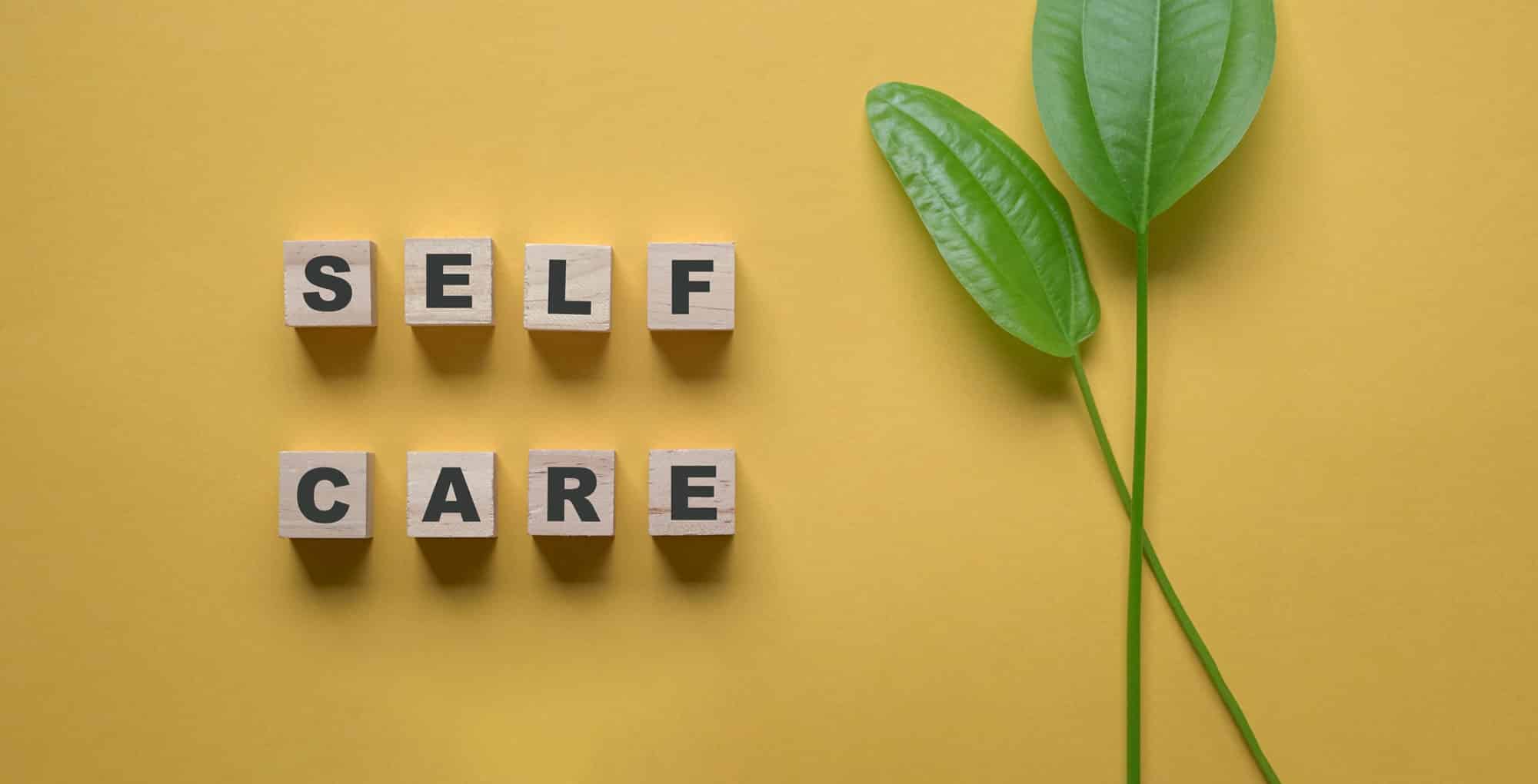By Wendy Lee Nentwig
We all know the importance of getting enough sleep and eating healthy food, but during times of stress those things — and other healthy habits — can fall by the wayside. In juggling work, school, relationships, family obligations, finances, and fun, it’s easy to get off-balance. But self-care isn’t just today’s trendy buzzword, it’s a necessity. When you’re younger, it may take longer to feel the effects of stress and unhealthy habits like staying up all night or drinking too much, but they catch up with everyone, impacting both physical and your mental health. Not taking proper care of yourself can also leave you feeling depleted, with nothing to give to others.
What Is Self-Care?
To practice self-care, first we need to know what it is. Some imagine a tub full of bubbles or a spa treatment, while others worry it means putting themselves first at the expense of others. Neither are true reflections of what self-care really is. Simply put, it’s “a learned behavior that involves practices and activities initiated and performed to maintain health, life, and well-being,” according to a study by the Mountain Plains Prevention Technology Transfer Center under a cooperative agreement from the Substance Abuse and Mental Health Services Administration (SAMHSA).
Not taking proper care of yourself can also leave you feeling depleted, with nothing to give to others.
It’s not just about taking care of yourself physically either. Self-care extends far beyond what you eat or how much sleep you get, encompassing your emotional and mental well-being, personal relationships, and more. It’s also important to recognize that self-care looks different for everyone.
Types of Self Care
There are six types of self-care: emotional, psychological, physical, spiritual, professional, and relational.
Emotional
Emotional self-care helps you acknowledge and express your feelings regularly and safely. Seeing a therapist, journaling, creating art, or playing music are forms of self-care that can help you develop healthy coping skills to manage feelings of anger, anxiety, and sadness.
Psychological
The thoughts and things you fill your mind with significantly impact your psychological well-being. Doing puzzles or learning about something new that interests you helps keep your mind sharp. Additionally, practicing self-compassion and acceptance enables you to stay mentally healthy by reformulating your inner dialogue.
Physical
Physical self-care can positively impact your overall well-being. Taking care of your body by eating healthy foods, exercising regularly, and getting enough sleep, allows your body to run efficiently. Addressing your physical needs such as attending doctor’s appointments, taking proper medications, and managing your health are also forms of physical self-care. Additionally, there’s a strong connection between the mind and body. Therefore, taking care of yourself physically will help you feel better mentally.
Spiritual
Spirituality doesn’t have to include religion. It can simply involve activities that help you develop a more profound sense of meaning, understanding, or connection with the universe. Some forms of spiritual self-care might include meditation, practicing yoga, attending a religious service, or praying.
Professional
Professional self-care includes activities that support a balanced and fulfilling career. These self-care tips can prevent burnout and inspire you even if you have a low-stress job you love. Some forms of professional self-care might include setting a calendar reminder to take a lunch break, setting your phone on ‘do not disturb’ during non-work hours, or taking a mental health day when you need it.
If you’re a manager looking for some self-care tips to support your staff better, you can spend time with coworkers outside of work or take courses, attend conferences, and work with a mentor to develop your skillset for your desired career path.
Relational
It’s easy to neglect your relationships when busy or overwhelmed, but socialization is critical to self-care. It’s essential to devote time and effort to cultivating and maintaining your close relationships. Everyone’s social needs differ, so it’s best to understand your social needs and dedicate time in your schedule to your social life. Some forms of relational self-care might include scheduling a weekly phone call with your mom, hosting a night with friends, or going on a date with your significant other.
Self-care is so important that the World Health Organization (WHO) recently drafted its detailed “Guideline on self-care interventions for health and well-being.” It includes evidence-based guidance to support individuals, communities, and countries in focusing on self-care as part of healthcare.
The Effects of Neglecting Self-Care
You may think you’re managing to keep all those balls in the air, but then one minor mishap sends you reeling. The pressure to compete with the perfect lives everyone tries to portray on social media can cause some major stress. And chronic stress can launch a negative chain reaction that results in a wide range of poor habits.
Self-care extends far beyond what you eat or how much sleep you get, encompassing your emotional and mental well-being, personal relationships, and more.
The mental health crisis is growing and loneliness is at epidemic levels. A recent Cigna study found that three in five Americans (61%) feel lonely, compared to more than half (54%) in 2018. And this is impacting younger generations the most. Nearly eight in 10 Gen Zers (79%) and seven in 10 millennials (71%) are lonely, compared to only half of boomers (50%). Meanwhile, in SAMHSA’s most recent National Survey on Drug Use and Health (NSDUH), young adults reported the highest levels of symptoms of anxiety and depression, with 62.9% admitting to either or both. Their rates of having started or increased substance use to cope with pandemic-related stress or emotions were way up there as well at 24.7%. That rate was equal or higher only among the essential workers and unpaid caregivers.
“Taking care of myself doesn’t mean ‘me first,’ it means ‘me, too.’”
Author L.R. Knost
A lack of social support and infrequent meaningful social interactions, poor physical and mental health, a lack of “balance” in daily activities, and unhappiness with a current romantic relationship all contribute to loneliness, depression, and stress. Americans reporting good mental health is down five percentage points from 2018 (76% vs. 81%), while the Centers for Disease Control and Prevention (CDC) report that 20% of Americans will experience a mental illness in a given year.
Prioritizing Self-Care

Taking care of yourself is about more than just an early bedtime and eating enough leafy greens. It’s about being aware, checking in with yourself, and self-correcting to lessen anxiety, stress, depression, or feelings of loneliness or despair. Don’t look at this checklist as one more thing to do, think of it as a necessary part of your day that will make you happier, more productive, and ultimately, at peace.
Look – Take a minute each day to take stock of how you’re feeling and what’s going on in your life. Are you tired, hungry, depressed? Adjust accordingly.
Listen – Some favorite music, soothing rain sounds, even the birds outside your window can improve your mood.
Breathe – It doesn’t need to be a full-on meditation session, even a few deep breaths can lower your heart rate and calm your body.
Move – Regular time at the gym is great to get those endorphins pumping, but stretching, an online yoga session, or a walk through your neighborhood can benefit your body and your mind. It can even improve your sleep.
Unplug – Give your FOMO a rest and take a regular break from technology. If it’s really important, it will still be there when you pick your phone back up.
Connect – It’s important to find people you can trust to support you and help build you up, not tear you down. Spend time cultivating these relationships, and when you can’t meet in person, stay in touch by phone, text, or social media.
Express – Journal, paint, sing, color, create (no talent required!). This is about expressing yourself, not the final product.
Ask – Don’t be afraid to reach out for help, too, when you need it.
In the end, we make time for what’s important to us. So, if you value yourself, you should take care of yourself. After all, if you don’t prioritize yourself, who will? But remember, it’s not a perfect science. Be kind to yourself, forgiving missteps and quickly course-correcting. Instead of resorting to negative self-talk, focus on what you’ve accomplished, what you do well, your gifts and talents. You’re worthy of the best care, and it’s not self-indulgent to focus on making sure your needs — from physical and emotional to psychological and relational — are getting met.
When It’s Time to Ask for Help
Some problems are bigger than what you can fix on your own. If your stress, anxiety, or depression is negatively impacting your life and relationships, it might be time to seek professional help. The Meadows can help you determine what isn’t working, create a new road map for the future, and give you the tools you need to move forward with confidence.

